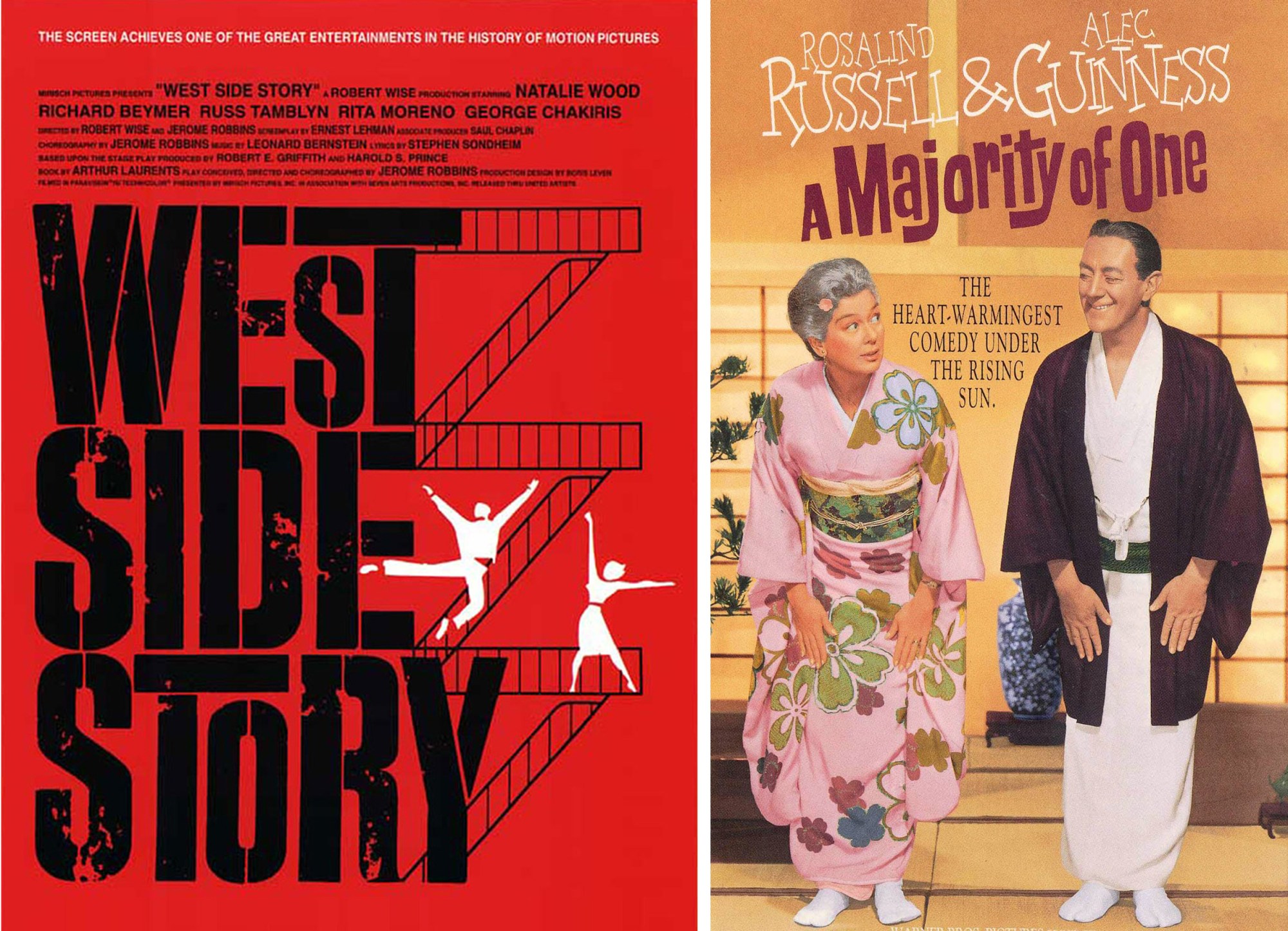
- Golden Globe Awards
1962 – Musical: West Side Story, Comedy: A Majority of One
1962 was the year the Golden Globe winner for best musical won both supporting Golden Globes, an achievement repeated when George Chakiris and Rita Moreno also won Academy Awards that year. Many, today consider the movie they starred in, West Side Story, the greatest motion picture musical of all time. Based on the Broadway show, which ironically failed to win the Tony that year, it was an instant classic and remains one of the masterpieces of American theater thanks to the contributions of composer Leonard Bernstein, lyricist Stephen Sondheim, and choreographer Jerome Robbins.When United Artists secured the rights, there was no guarantee that the film version would work. The only star power the Mirisch Company could muster was Natalie Wood, to play Maria, even then a controversial choice. Walter Mirisch’s company had won the year before for The ApartmentIn the Heat of the Night.Most of the roles were assigned to actors new to the screen except for Richard Beymer, who the previous year had appeared in George Stevens’Diary of Anne Frank. Elvis Presley was sought after to play Tony but his manager Colonel Parker would have none of it, a decision Elvis later regretted.Thank goodness Wiser (pun intended) minds prevailed. Robert Wise, known for hard-hitting dramas, was signed on as director. This being his first musical, he wisely enlisted Robbins to co-direct, which didn’t exactly work out. Robbins, of course, was a perfectionist, and when the opening dance sequence went way over budget, he was fired, but Wise, being the gentleman he always was, insisted on their sharing not only screen credit but also all the awards the two of them later received. As for Bernstein and Sondheim, both had reservations about the way the music was used in the film, Sondheim unhappy with their rearrangement in the story. Few agreed with him, and the film ended up the second biggest moneymaker of the year.A Majority of One, the Golden Globe winner for Best Comedy that year, was also based on a successful Broadway play. Gertrude Berg, much loved for her TV character Molly Goldberg, played a matronly Jewish lady who holidays in Japan and becomes enamored of a Japanese businessman. For the movie version, the role was given to Rosalind Russell. Alec Guinness played her Japanese suitor.When offered the part, Russell tried to persuade Warners to let Berg play the role but changed her mind when she found out Guinness would be her costar. Not surprisingly Russell won the Golden Globe for Best Actress in a Comedy and in her acceptance speech she acknowledged, “I share this award with Gertrude Berg.” It was Russell’s fourth Golden Globe having won previously for Auntie Mame, Mourning Becomes Electra, and Sister Kenny. The film also won a Golden Globe for Promoting International Understanding. Despite its commercial trappings the film is a delight and was hugely popular.

